
The Land Bank of the Philippines (LBP) is a government financial institution that strikes a balance in fulfilling its social mandate of promoting countryside development while remaining financially viable.
The NHRIS aims to deliver an integrated, robust, and flexible information system, optimized specifically to address the strategic requirements of the Landbank Human Resource Management programs.

The Securities and Exchange Commission (SEC) or the Commission is the national government regulatory agency charged with supervision over the corporate sector, the capital market participants, the securities and investment instruments market, and the protection of the investing public. Created on October 26, 1936, by Commonwealth Act (CA) 83 also known as The Securities Act, the Commission was tasked to regulate the sale and registration of securities, exchanges, brokers, dealers, and salesmen.
The iHRIS aims to deliver an integrated, robust, and flexible information system, optimized specifically to address the strategic requirements of the SEC Human Resource Sub-sector towards becoming a center of excellence in human capital management.

The Department is mandated by RA 7638 (Department of Energy Act of 1992) to prepare, integrate, coordinate, supervise and control all plans, programs, projects, and activities of the Government relative to energy exploration, development, utilization, distribution, and conservation.
The EDCMS shall be a web-based system and shall serve as a locator and cataloging of various submissions of the energy contractors related to information gathered during the exploration and development of the country’s energy resources potential.
A custom cloud-based virtual collaborator client and monitoring application in complementary support on the existing primary DOE Virtual Collaborator Client for the conduct of Virtual – Information Education and Communication ( V-IEC) Campaigns and other virtual Activities of DOE concerning the Implementation of RA 11285 otherwise known as “ Energy Efficiency and Conservation Act”.

The PSHS System is an attached agency of the Department of Science and Technology (DOST). The Board of Trustees (BOT), with the DOST Secretary as the Chairman, is the highest policy-making body of the PSHS System. The Office of the Executive Director acts as the central office for systemwide communication, collaboration, policy implementation, and monitoring of operations of PSHS campuses.
The NFAPS aims to allow online payment application fees and release of test permits, automate checking of the NCE answer sheets, online release of NCE Results, automate the mapping of qualified applicants to the correct campus, and readiness for integration of NFAPS data to the to-be-developed PSHS Student Information System ( SIS).
The SIS will allow PSHS to post public information and data, streamline and standardize certain processes to avoid backlogs and bottlenecks, and create analytic tools and reports to aid in evaluating student and teacher performance.
PSHS requires Web Hosting Services to ensure the continuity of the KHub and NFAPS, and accommodate the teaching and learning needs of the PSHS community.
PSHS requires Web Hosting Services to ensure the continuity of the KHub and NFAPS, and accommodate the teaching and learning needs of the PSHS community.

The GOVERNANCE COMMISSION FOR GOCCS (GCG) was created under Republic Act No. 10149 (RA No. 10149), otherwise known as the “GOCC Governance Act of 2011”, as the central policy-making and regulatory body mandated to safeguard the State’s ownership rights and ensure that the operations of GOCCs are transparent and responsive to the needs of the public.
The ERP Software Solution – Phase 1 aims to deliver an integrated, robust, and flexible information system, optimized specifically to address the strategic requirements of the GCG’s Administrative and Finance Office towards becoming a center of excellence both in human capital management and property management.
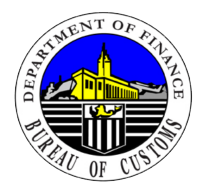
The Bureau of Customs (BOC) implements an effective revenue collection by preventing and suppressing smuggling and the entry of prohibited imported goods. It supervises and controls the entrance and clearance of vessels and aircraft engaged in foreign commerce.
The project aims to enhance and extend the protection being provided by the current cybersecurity solution of BOC. This involves the installation of FireEye as a Service/managed Defense Solution which will enable BOC to find and stop network adversaries before they steal, manipulate or destroy BOC information assets.
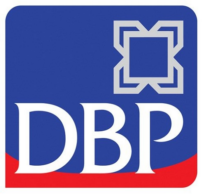
Its primary objective is to provide banking services principally to cater to the medium and long-term needs of agricultural and industrial enterprises with emphasis on small and medium-scale industries.
An online payment platform that provides necessary services for the acceptance of online payments through credit/debit/prepaid cards to government and private agencies and institutions.
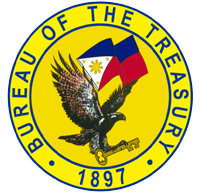
As principal custodian of government funds, the Bureau of the Treasury (BTr) is responsible for ensuring the sufficiency of Government financial resources including the active management and investment of excess funds.
The engagement aims to provide the BTr necessary tools and expertise to address its needs for technical support to set up, manage, and maintain, in good operating condition, its Ayuntamiento IT structure and Data Center Facility, which is comprised of Data Center Equipment and Infrastructure, Data Center Cooling System, and Security and Monitoring System.

DBP - The Development Bank of the Philippines is the country's most progressive development banking institution. It is the first Philippine bank to be ISO 14001 certified for its successful establishment and implementation of an Environmental Management Systems (EMS) in 2002, a recognition that covers its banking, lending and investment activities. As the country's pre-eminent development bank, DBP commits itself, to the well-being of the Filipino people by initiating and accelerating sustainable economic growth through the provision of medium and long-term financing in partnership with other funding institutions. The bank is capitalized at US$670M. It has about 77 branches nationwide, offering its international and merchant banking services, and treasury products and services. DCI has been providing staff supplementation and facilities management to the DBP as it continues to change and improve with the times. It has been operating, enhancing and maintaining the bank's IT systems, namely Admin, HR, Trust and Treasury, CASA, Loans, Accounting, and other application services. DBP has a Service Level Agreement with DCI which covers, among others, the following:
Because DBP has essentially outsourced the development and maintenance of its IT systems to DCI, the bank has streamlined manual processes, eliminated redundant tasks and integrated related processes of each department.

The Philippines' Department of Energy or DOE is the executive department of the Philippine Government responsible for preparing, integrating, manipulating, organizing, coordinating, supervising and controlling all plans, programs, projects and activities of the Government relative to energy exploration, development, utilization, distribution and conservation. The Department of Energy was created by then President Marcos as he issued Presidential Decree No. 1206 which created the Ministry of Energy and attached the National Power Corporation and Philippine National Oil Company to this new agency. The Ministry and its two bureaus (Bureau of Energy Development and Bureau of Energy Utilization) remained intact but was downgraded into a mere Office of Energy Affairs--headed by Wenceslao de la Paz and reporting to then Deputy Executive Secretary for Energy Catalino Macaraig, Jr. based in Malacanang--during the regime of President Corazon Aquino. During the regime of President Fidel V. Ramos, the Department was created due to Republic Act No. 7638 otherwise known as the Department of Energy Act of 1992. The Department was vested additional powers and functions under pertinent energy and power-related legislations, such as Republic Act (RA) No. 9136 or the "Electric Power Industry Reform Act of 2001", RA No. 9367 or "Biofuels Act of 2006", and RA No. 9513 or "Renewable Energy Act of 2008.
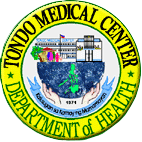
The Tondo Medical Center (TMC) is a 300-bed capacity tertiary public medical center established in 1971, under the supervision and control of the Department of Health (DOH). It is located on North Bay Boulevard, Tondo District, City of Manila, Philippines. TMC has eight hospital departments, all of which are currently accredited with their respective specialty societies except for EENT and Radiology which are still in the process of accreditation with the DOH.
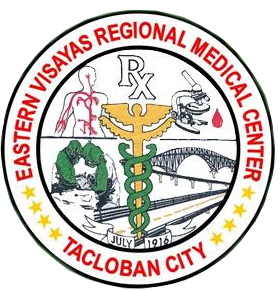
The Eastern Visayas Regional Medical Center is a tertiary level teaching and training government hospital in the Philippines. On June 18, 1966, the then Speaker Daniel Z. Romualdez Memorial City Hospital was established as a general hospital in Tacloban with service capacity of one hundred beds. It was later renamed to Eastern Visayas Regional Medical Center.
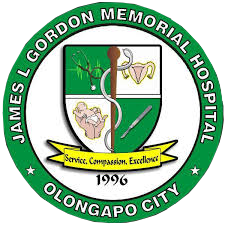
A tertiary government hospital in New Asinan,Olongapo, Zambales which has been an HIV treatment hub.
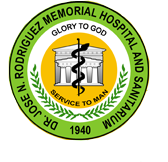
Formerly, Central Luzon Sanitarium or Tala Leprosarium is one of the eight sanitaria mandated to serve patients afflicted with Hansen’s Disease, popularly known as leprosy. Along with two other leper colonies in Luzon, it was established in 1940 by virtue of Commonwealth Act No. 161, which declared the Leprosarium as a reservation and settlement area for hansenites and their immediate families. Located in Tala, Caloocan City, it has a total land area of 130,000 hectares. At present, it is now referred to as the Dr. Jose N. Rodriguez Memorial Hospital and Sanitarium (DJNRMHS) after it opened to non-hansenite patients in 1970. The Hospital also conducts other services available for patients such as physical therapy, occupational therapy, radiology, laboratory and medical-social services and assistance.

PNP - The Philippines National Police is the armed, civilian national police force of the Philippines. Its national headquarters is at Camp Crame in Quezon City , Metro Manila, and it has 160,000 personnel.It is administered and controlled by the National Police Commission and is part of the Department of the Interior and Local Government(DILG).

BOC - The Bureau of Customs is an attached agency of the Department of Finance. It is charged with assessing and collecting customs revenues, curbing illicit trade and all forms of customs fraud, and facilitating trade through an efficient and effective customs management system.

BPPA - The Philippine Ports Authority is a government-owned corporation under the Department of Transportation and Communications as an attached agency. It is responsible for financing, management and operations of public ports throughout the Philippines, except the port of Cebu, which is under the Cebu Ports Authority.
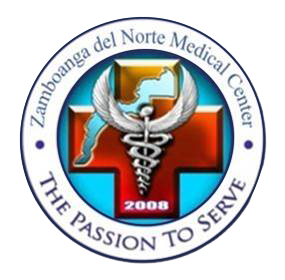
ZNMC - Zamboanga del Norte Medical Center was founded on December 16, 1996. It was started by a cross section of sectors among them health professionals that includes nurses and doctors of the former North and Maternity Hospital, retirees from the government, banking sector as well as private individuals.
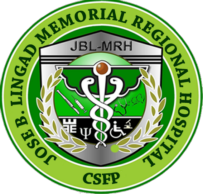
JBLMRH - The Jose B. Lingad Memorial Regional Hospital is a Level III tertiary, teaching and training hospital with 250 authorized beds as mandated by R.A. 6780 year 1990. The hospital caters to the people of Region III with the people of Pampanga as its primary catchment area and the nearby provinces of Bataan, Nueva Ecija, Bulacan, Tarlac, Zambales and Aurora as its secondary catchment areas
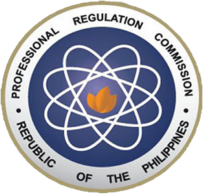
PRC - The Professional Regulation Commission was first created as a national government agency by Presidential Decree (P.D.) No. 223 dated June 22, 1973, signed by then President Ferdinand E. Marcos, mandated to enforce the laws regulating the various professions. It was previously called the Office of the Board of Examiners, which was created by Republic Act No. 546 on June 17, 1950, under the aegis of the Civil Service Commission.

CDA - is a government agency created by virtue of Republic Act No. 6939 in compliance with the provisions of Section 15, Article XII of the Philippine Constitution of 1987 which mandates Congress to create an agency to promote the viability and growth of cooperatives as instruments for equity, social justice and economic development. RA 6939 was signed into law on March 10, 1990.
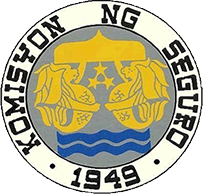
ICT - Resource Implementation Project
As a government agency under the Department of Finance (DOF), the Insurance Commission regulates and supervises the operations of various insurance companies, mutual benefit association and trusts for charitable uses. In its aim to be able to provide every Filipino with an opportunity to secure insurance protection as well as observe practices which are at par with regional and global standards by year 2020, the Commission has begun to leverage on IT as part of its strategic initiatives.

Information Systems Strategic Plan (ISSP)
FTI is an agro-industrial-commercial estate that provides leasable facilities and buildings that cater for the needs of food producers, manufacturers, exporters and other sectors in the food industry. The company is looking into defining their overall Information Systems (IS) and rationalizing the acquisition of Information Technology (IT) resources for the years 2007-2009 that supports FTI's vision and mission statements.

DOT - Information Systems Strategic Plan (ISSP)
The Department of Tourism, a government agency tasked to promote and develop tourism as a major socio-economic activity to generate foreign currency and employment and to spread the benefits of tourism to both the private and public sector. The Government Information Systems Plan (GISP), also known as "Philippine Government Online" mandates all government agencies including local government units, to align their respective ICT projects with the priorities identified in the overall framework for all computerization efforts in the government through an Information Systems Strategic Plan (ISSP). It serves as the blueprint of the agency's IT directions and is intended to rationalize the purchase of Information Technology (IT) resources.
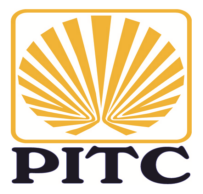
PITC - Information Systems Strategic Plan (ISSP) The Information Systems Strategic Plan (ISSP) serves as the building block for the Government Information System Plan (GISP) and the blueprint of the organization for supporting, sustaining and developing a rich information systems environment. It guides the organization in the various aspects of technology, solutions, IT strategies, IS strategies, IT manpower support and budgetary requirements. It outlines the requirements and information needs of the organization and how best to utilize information technology in achieving the company's goals. DCI offered its consultancy services to the Philippine International Trading Corporation (PITC) for the formulation of its new ISSP. The requirements for the formulation of the ISSP included the assessment of PITC's processes, resources, existing solutions and goals. These entailed the investigation of the organization on its ability to meet current and emerging information needs, and examination of its overall approach to data collection and management, as well as the study of current solutions and best practices that may prove useful to the organization. The objective of the study had been to undertake a defined and technical study and re-design of the ISSP of PITC. It included the determination and identification of the current Information and Communications Technology (ICT) environment, infrastructures and thrusts, financial and budgetary implications, as well as the requirements of their systems. The study was intended to enable the proponents to prepare a high level plan to support a systematic, incremental effort to improve the existing information infrastructure and information systems as well as facilitate the development of needed information systems to address emerging needs. It was also made to ensure that the developed ISSP is in conformity to the requirements of the regulatory bodies. PITC's decision to thoughtfully lay down a 3-Year Information Systems Strategic Plan (ISSP) based on PITC's corporate vision and mission is a wise investment towards ensuring a better future for the corporation.

DNCC - The National Computer Center, now under DICT, is the lead agency for promoting the use of ICT in the government. It strengthens its support of the government IT sector through its active participation in the passing of the e-Commerce Act, advocacy, and building of the K-economy framework of the Philippines, as well as through its continuing research on new and emerging ICT technologies. DCI is working hand-in-hand with the NCC to create an e-Government Payment Gateway known as e-Pay. e-Pay will be a convenient Internet and mobile phone payment facility for citizens, investors, and anyone transacting with the government. It will accept payments through credit cards, debit instructions, and other technologies such as G-Cash and Smart Money. The NCC and DCI are taking the lead in the solutions design and project management, guided by a defined business framework and coordinating with other government agencies, bank consortia, and mobile services providers. This project is one of the two major components of the approved e-Government Portal Project (the other being e-Services). Every participating government agency can lower administrative costs and provide better customer service through faster, more efficient, and more convenient citizen-to-government (C2G) transactions. This multi-million peso system is the first wide-scale government initiative of this coverage and magnitude with a targeted 1 million transactions per month.

CSC - PERSONNEL INFORMATION DATABASE SYSTEM (CSC PIDS) Government is faced with key issues on employment management. First and foremost of these is the size and cost of the civil service corps which put a strain on government's limited fiscal resources. Other concerns include poor record-keeping, ineffective capturing of updated employee records, lack of standards or inability to track employee movements, and the manual and inefficient management of plantilla Addressing these concerns is the main rationale for the Civil Service Commission Personnel Information Database System (CSC-PIDS) Project. Designed to handle personnel information transactions, the CSC-PIDS will be a repository of the agency's more than one million records, which include personal data, appointments, promotions, and performance records of all civil servants. The CSC-PIDS will feature a unique record identifier and will consolidate all the personal records of each civil servant through a one-time data entry capability. The system standardizes the tracking of employee movements in real-time, report formats, and human resource research. The system will eventually be linked to the Government Human Resources Management Information System (GHRMIS), which synchronizes and integrates information from all government human resource databases. DCI was contracted to do the above-mentioned database upgrade project of the Civil Service Commission. DCI has just completed scanning CSC records and is already about to begin developing and installing the Personnel Information Database System (CSC-PIDS) in this year 2006. DCI is also a consultant on the change management process related to the project. The change management team is tasked with making the transition smooth for all those involved in the new system. The CSC expects changes and reactions as the system is implemented, and the team will ensure that it is sustainable and acceptable to the users. The new technology-aided system will address the CSC's problems related to poor record keeping, ineffective capturing and updating of employee records, and manual plantilla management. The new database and its features are expected to lower costs, improve data accuracy and relevance, and ultimately ease the agency's human resource management tasks. Probably most important, the system and the database will facilitate compensation policy review and enhance the merit system among employees of government agencies. The project will definitely make the CSC more efficient and dynamic, thus forging forward to become a showcase of what e-governance is and what it can do to improve public service. Filipinos will benefit from the project as this will enhance civil service professionalism which translates to improved delivery of public service. As the system will facilitate plantilla as well as compensation policy reviews, government can maximize its management of expenditures on personnel services, especially in view of fiscal constraints that government is currently faced with.

PCSO - The Philippine Charity Sweepstakes Office (PCSO) is the principal government agency for raising and providing funds for health programs, medical assistance and services, and charities of national character. PCSO's Charity Fund is a trust and liability account used exclusively to finance and support health programs, medical assistance and services and/or charities of national character. Presently, any disbursements from the Charity Fund must not only be authorized by the PCSO Board of Directors but must also be approved by the Office of the President, regardless of the amount thereof DBP Data Center, Inc. (DCI) has developed a Charity Fund Information System (CFIS) for PCSO, cutting the manual process of monitoring funds and support of their various programs. The CFIS contains the following features:

PTTC - Wesbite Training for SMEs Established in 1987, the Philippines Trade Training Center is an agency under the Department of Trade and Industry set-up to train exporters, manufacturers and entrepreneurs in the areas of International Marketing, Testing and Inspection and Trade Exhibition in order to become more competitive in the international market. The Philippine Trade Training Center (PTTC) undertakes the training of selected Small-and-Medium Enterprises (SME's) in website development through DCI's services. DCI has been contracted to conduct a five-day training for the SME's which consists of 15 SME's in a batch. The course includes basic training on HTML, use of the Content Management System (CMS), manipulation of images for the web and a brief introduction to Flash files. Each SME's Website portal will include a start page with rich navigation, a collection of loosely integrated features, that their clients may avail to use appropriately whether thru communication (email, forums, etc.), promotional activities (advertisements, calendar and schedules, online store), research and resource (search engine, resource library) and other online services. The diverse clients are its basic market, which forms a large and distinct target audience. The SME's Portal service will offer its service 24 hours a day, seven days a week, with basically no downtime for all its contents and services. It should basically be a place to start on the web, especially to the SME's clients, that will provide timely information and persuade visitors to frequent the site. Aside from the training, DCI's value-added services to the SMEs who have undergone the training include a template design for the SME's portal, web hosting and domain name and registration. DCI has provided the SME's with a one-year web hosting service through an Internet Service Provider (ISP). The web hosting services include unlimited email boxes, forwarding or mailing list, up to 2MB shared bandwidth, secured webmail and a dedicated IP address. DCI has also assisted the trainees from uploading their website, management of content and registering the domain names for SME's. This training is a part of the company's long-term vision of empowering small and medium businesses to expand their reach and become globally competitive. It aims to inject creativity into the SME market and give local businesses a start on the web. Philippine Trade Training Center, Home Page http://www.pttc.gov.ph/home.php
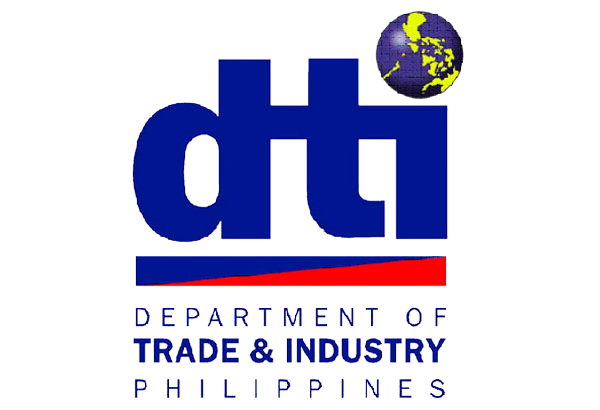
DTI - Financial Management Information and Tracking System (FMITS) The Department of Trade and Industry (DTI) is the government's key agency in charge with all trade, industry and investment-related activities in the Philippines. Aside from supporting fair and robust trade in goods and services within and outside the Philippines, part of its mandate is the creation of an environment conducive to the growth of businesses and enterprises. With the introduction of incentives and programs in support of the above mandate, the seemingly constant increase in number of investors, businessmen, exporters and Small-and-Medium Enterprises (SMEs) has been observed. This has set a drawback for the agency in tracking financial transactions and the pertinent documents attached to it, both from internal and external sources. With the current procedure of tracking and recording document transfers manually resulting to missing documents and delayed payments, DTI has undertaken to develop a system which will effectively and efficiently handle flow and recording of all documents/transactions, mostly claims and obligations due for payment to its services providers, suppliers, creditors and employees alike. The said system shall be in accordance with existing rules and regulations pertaining to government financial management. DCI is developing a Financial Management Information and Tracking System (FMITS) for DTI to provide a scalable and cost-effective system that will effectively track document location and status. The FMITS aims to improve turn around time of document processing. It also allows real-time monitoring and updating of transaction status and balances. Other features of the FMITS are as follows:
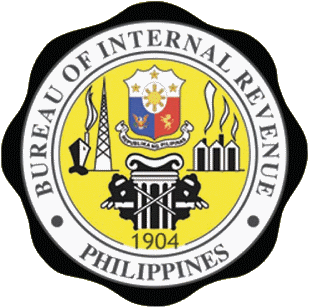
BIR - Electronic Filing and Payment System (eFPS) is an e-service of the Bureau of Internal Revenue (BIR) which provides taxpayers a paperless tax filing experience and convenient payment of tax dues utilizing the power of the Internet. DCI provided the following enhancement to the existing system, including its core modules: Application Enhancements •BIR Forms were made dynamic to handle multiple entries; BIR Forms were made capable of handling the checking of attachment's validation key up to form type level, attachment's directory folder was changed into form type, and for amended return, the system was made to keep the original attachment or file as the old copy is intended for version control. •The Back-end process was enhanced to improve the batch logging system. •RA No. 9334 for Excise Forms 2200A & 2200T, RA no. 9337 (eVAT Law) and tax-related legal changes that affect the existing system during the course of the project were implemented. System Documentation Integrated the Technical Documentation of the existing system to the proposed solution which entailed: updating of the Operations and Users Manual, Functional and Technical Specifications, Program Specifications and Source Codes, Job Aids for Internal and External users, and Configuration Management Report. The project established an infrastructure that will provide convenience to the taxpayers by enabling them to file their returns and pay their taxes through the Internet, and lessen encoding errors and increase and improve reliability of returns data. eFPS is definitely beneficial for BIR and the country. The Online filing of tax returns spells convenience and more time for other matters for the agency. Enhanced tax collection could only mean better performance at BIR, and more revenues for the government. Enhancements covered the existing eFPS BIR Forms and the new forms brought about by tax related legal changes that occurred during the duration of the project.
Want to get in touch? We’d love to hear from you. Here’s how you can reach us…